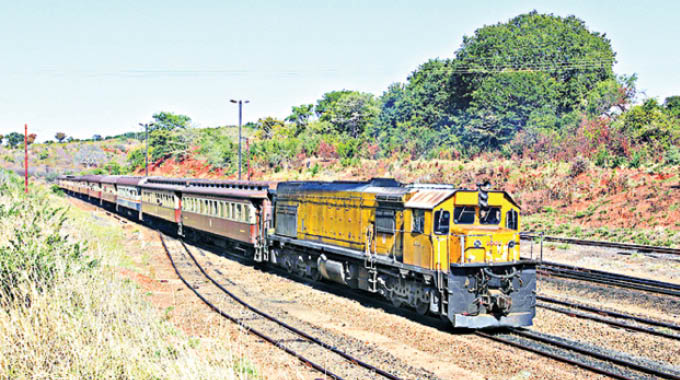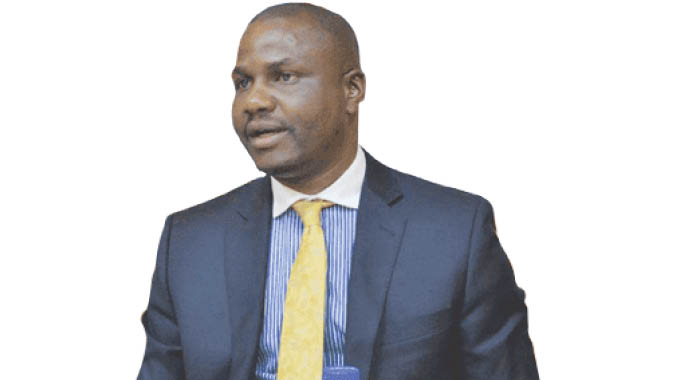EDITORIAL COMMENT: Government must urgently retender the NRZ revival project

The nation’s hopes were raised in August 2017 when the Diaspora Infrastructure Development Group (DIDG)/Transnet partnership won a tender to recapitalise the National Railways of Zimbabwe (NRZ).
It was a $400 million deal that was to entail the financiers reviving the utility’s rail network, rolling stock, workshops and so on. We celebrated then because the NRZ was, and unfortunately continues to, struggle under a heavy debt and operational challenges. Its railway lines are creaking and replete with cautions — the rail equivalent of potholes on roads and its signaling equipment is basically down. Its locomotives are too aged and small to haul heavier cargo, the same for its wagons.
At some point the parastatal was failing to regularly pay its workers. By June this year, the NRZ’s debt was $500 million.
All these factors combined made it impossible for the parastatal to move as much cargo as it should to ensure profitability. In the first half of this year, for instance the NRZ moved 1,3 million tonnes of freight, generating $76,5 million. The cargo moved was down eight percent compared to the same period last year. Figures released last month indicated that the NRZ projected to move 4,2 million tonnes of cargo this year, a tough call in our opinion given the poor first half record and the challenges the utility continues to face. Even if the target is reached, it remains far off the parastatal’s design capacity of 18 million tonnes of freight a year.
Therefore, the DIDG/Transnet arrangement was in a way, coupled with anticipated concomitant recovery in the economy, for NRZ to move out of the hole. As negotiations for financial closure progressed, a stop-gap measure to cover resource constraints at the transporter was reached in February last year. It involved the NRZ leasing nine class 341 locomotives, four class 43 locomotives and 200 wagons as well as 34 passenger coaches from Transnet. President Mnangagwa commissioned the rolling stock in Bulawayo.
However, 26 months after the DIDG/Transnet alliance won the tender and 14 months after the interim arrangement was executed, the whole deal had to be cancelled. This was because the DIDG/Transnet partnership has failed to inject the needed resources and also that it has itself collapsed. The Government felt an asset as central to the economy as the NRZ could not continue that way hence the decision to move on and open up for new, stable and better-resourced financiers.
Permanent Secretary for Information, Publicity and Broadcasting Services Mr Nick Mangwana said on Wednesday that the Government had re-tendered the project. He said DIDG and Transnet had not provided proof for funding to the Government’s satisfaction, adding that the breakdown in their relationship was a possible source of legal issues in future if the deal had been allowed to subsist.
“Government indulged the consortium by working with them outside the Framework Agreement. Regardless; they failed to present a common position,” said Mr Mangwana. “DIDG presented a funding structure based on funds sourced internationally, which excluded Transnet. The exclusion of Transnet had a legal impact on the tender which had been awarded to them as a consortium. In light of the foregoing, Government took a position to issue a new tender. If any of the former members of the consortium want to compete, they are still eligible to make bids and will be adjudged fairly.”
This marks the end of the relationship between the DIDG/Transnet consortium and the NRZ.
While we appreciate that clinching a deal to get the NRZ running again is no small task, the DIDG/Transnet effort was, in its present form, unlikely to succeed. If it did, that was likely to happen after a long time yet; the economy has no time to wait any longer.
Our economy, like others across the world, moves on its railways. The NRZ transports bulk cargo for the mining, manufacturing, infrastructure development and sometimes the retail sectors. In addition it is the most cost effective inland bulk transporter in the economy.
Without a reliable rail service, the local business sector is incurring substantially higher freight costs than they would have spent if the NRZ was in good condition. This is so because business is being forced to rely on road transport which, because of its nature, transports cargo in bits and pieces and it is costlier.
Therefore, our economy cannot wait for the NRZ to get back on its rails.
We urge the Government to swiftly move on to the next stage, which is to get the tender out again for new suitors to compete for the deal to revive the NRZ.
The nation is looking forward to a reputable, financially sound and knowledgeable entity winning the new tender so that work begins immediately for the NRZ to work again.










Comments